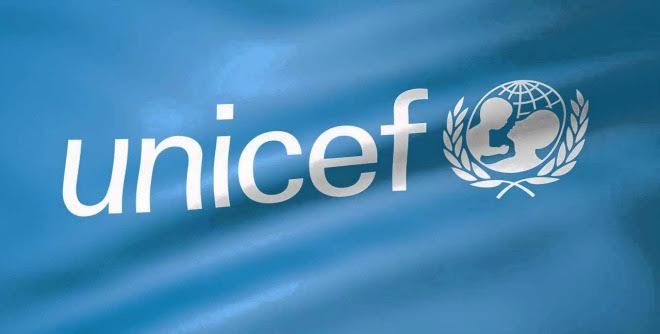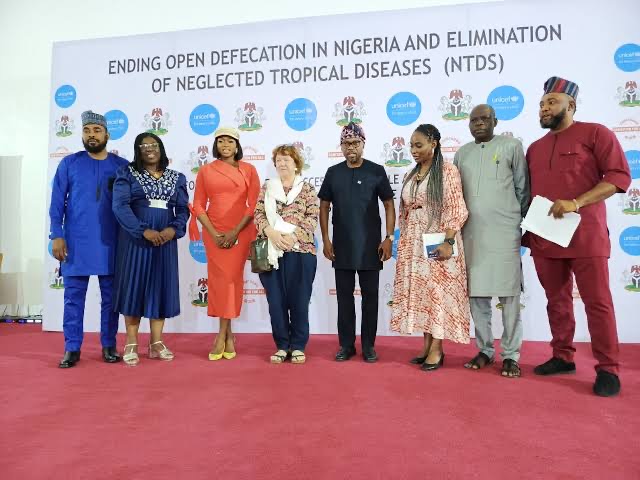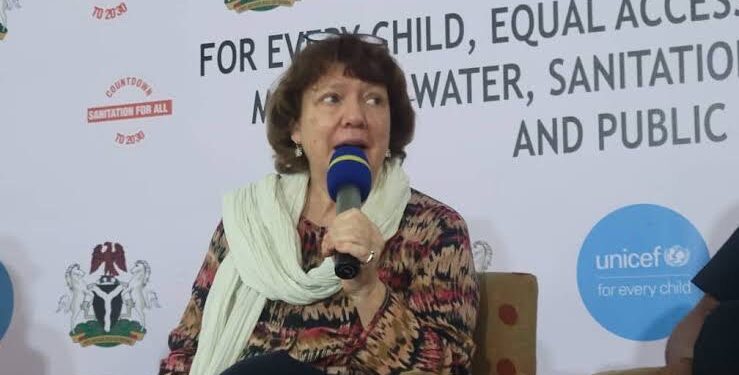The United Nations Children’s Fund (UNICEF) has emphasized the urgent need for a collaborative effort between the public and private sectors to tackle the problem of open defecation in Nigeria. This call to action comes in response to concerns over inadequate public sanitation facilities and the widespread health risks associated with open defecation.
Jane Bevan, UNICEF’s Chief of Water, Sanitation, and Hygiene (WASH) for Nigeria, voiced her concerns during a two-day media dialogue in Lagos, which focused on “Ending Open Defecation in Nigeria and Eliminating Neglected Tropical Diseases (NTDs).”

Bevan highlighted the critical lack of public toilets in numerous localities and urged for a united approach to resolve this pressing issue. “Our goal is not only to achieve a Nigeria free from open defecation but to foster a sustainable future where enhanced sanitation promotes health, economic development, and environmental sustainability,” she stated.
The media dialogue, organized by the Oyo State Water Supply and Sanitation Agency (RUWASSA) in partnership with UNICEF, brought together various stakeholders to discuss solutions and strategies. Bevan stressed the importance of collective action, saying, “We need the government, partners, and the private sector to join forces in our mission to eliminate open defecation.”
In addition to governmental and private sector involvement, Bevan called on the media to play a crucial role in educating the public about the dangers of open defecation. “With the media’s help, we can create a powerful movement that not only raises awareness but also leads to meaningful action at the community level,” she said.

Mrs. Chizoma Opara, Deputy Director of the ‘Clean Nigeria: Use the Toilet’ Campaign from the Federal Ministry of Water Resources and Sanitation, provided alarming statistics, revealing that approximately 48 million Nigerians still practice open defecation. She highlighted the link between open defecation and the spread of NTDs, stating that addressing this issue could significantly reduce disease transmission and improve overall sanitation and hygiene practices.
Opara explained that open defecation contributes to the spread of diseases such as onchocerciasis, schistosomiasis, and trachoma. These diseases are transmitted through contaminated soil and feces, perpetuating a cycle of poverty, malnutrition, and poor health.
Dapo Otunla, Chief Corporate Services Officer at IHS Nigeria, underscored the reality of sanitation issues in rural areas. He noted, “When discussing the need to end open defecation and raise awareness about sanitation, hygiene, and waterborne diseases, it’s clear that these issues are very real at the local level.” Otunla stressed the importance of public-private partnerships in addressing neglected tropical diseases and increasing awareness.
The event also featured Nigerian singer and UNICEF Champion, Waje, who called on her fellow entertainers to use their platforms to advocate for better sanitation and hygiene practices. Waje emphasized that influential figures can significantly impact public awareness and drive improvements in sanitation across the country.
By uniting efforts across various sectors, Nigeria can move closer to eradicating open defecation and improving health outcomes nationwide.


































